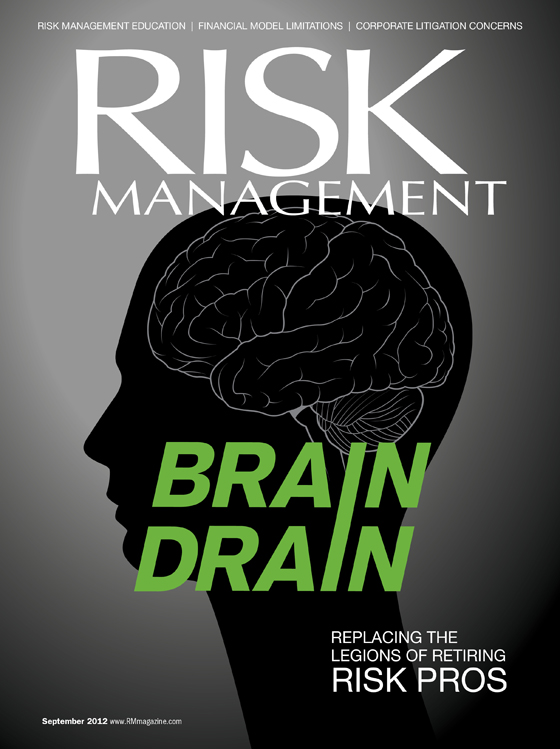
On the three-year anniversary of the Lehman Brothers bankruptcy — and with it, the beginning of the financial crisis that threatened a run on at least a dozen major global banks — a rogue trader was discovered to have defrauded his employer, the Swiss bank UBS, of nearly $2 billion.
What’s $2 billion between former friends, you might ask?
Indeed.
$2 billion isn’t going to bring down a bank of UBS’ size. $2 billion isn’t going to ignite another downward spiral of credit payments coming due. $2 billion isn’t going to hurt that badly, even if UBS is now reporting that the incident may cause it to go into the red for the third quarter.
So more than anything, what this undetected fraud highlights is just how poor the risk management still may be at one of the world’s biggest banks. And coincidentally — or perhaps not so much so — the head of risk for UBS was formerly the head of risk for Lehman.
“It’s astonishing given the technology, the systems, the emphasis on risk. UBS has been focusing on it, post-crisis they’ve put more focus on it than a lot of other banks,” the industry source said.
“I’m surprised that this many years after [previous rogue trader] Nick Leeson there are still the Jerome Kerviels of the world and now this one. How does a 31-year-old rack up a $2 billion loss without anybody noticing?”
Others said the crisis showed lax supervision at UBS and threw the spotlight on an industry that will always compel some staff to take excessive risks to keep ahead of rivals.
“No rogue trader works in a vacuum, and UBS’s management must have taken its eye off the ball to allow a trader to operate on this scale without sufficient supervision and without the systems to monitor his trades,” said Simon Morris, a partner at UK law firm CMS Cameron McKenna.
Worse still is the fact that UBS is unlikely to be the one isolated financial firm that has dragged its feet in implementing better protocols to avoid, or at least discover, threats. No, many of its peers are likely also not yet as far along as they should be — three years later.
Fortunately, some of the laws mandated by the Dodd-Frank financial sector reform act are starting to kick in. It remains to be seen if these new rules will help, but one of them mandates companies to create a plan that will help officials (namely, the FDIC) unwind and deconstruct complex transactions in the event they go belly up.
Submitting these plans, which have been called “corporate living wills,” is essentially giving the government “Tell Me How You Will Fail” blue prints.
The New York Times blog Deal Book breaks down the concept.
The basic idea is simple: big financial companies have to submit plans that explain how they would structure a future bankruptcy case or orderly liquidation authority proceeding if they were failing. The plans have to be written for two scenarios: one in which a financial institution alone fails, and one in which it fails as part of a broader crisis. In addition, financial institutions would have to disclosure their exposure to other significant financial companies.
The wrinkles start to develop when you see that the rules provide that the plans have to be made with an assumption of no governmental funding. That makes sense given how Congress has restricted the Federal Reserve’s §343 powers as lender of last resort, but it is not very appealing, especially for the systemic crisis scenario.
If not the government, precisely who is going to provide funding when the bankers are in severe trouble? And how precisely do you pay for a bankruptcy case — even a Chapter 7 liquidation case — with no funding? It probably involves the equivalent of leaving a failing bank in a vacant lot in Newark.
As Deal Book blogger Stephen Lubben notes, the schedule of this whole exercise means that finalized plans may not be on file with the FDIC until 2014. That, as well as more fundamental issues some have raised, make this an imperfect method to manage systemic risk in the financial system.
But considering that the government was making no attempt to manage systemic risk in any systematically way prior to the crisis, this can at least be considered progress.
As for whether or not it is a solution to the next global financial crisis that threatens to drag the world into a replay of the Great Depression, hopefully we will never have to find out.



